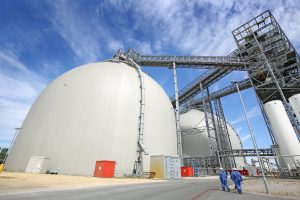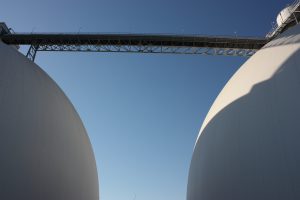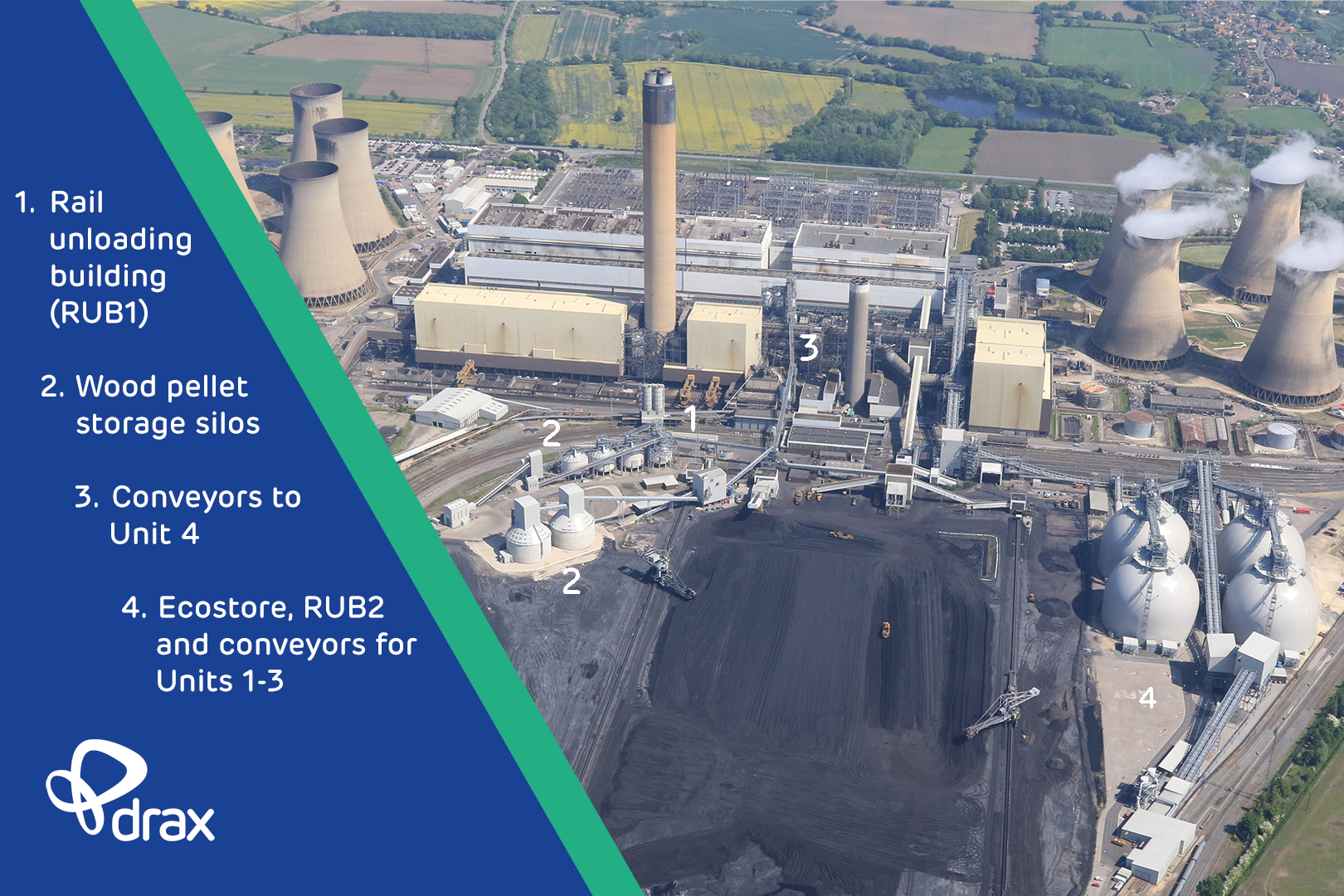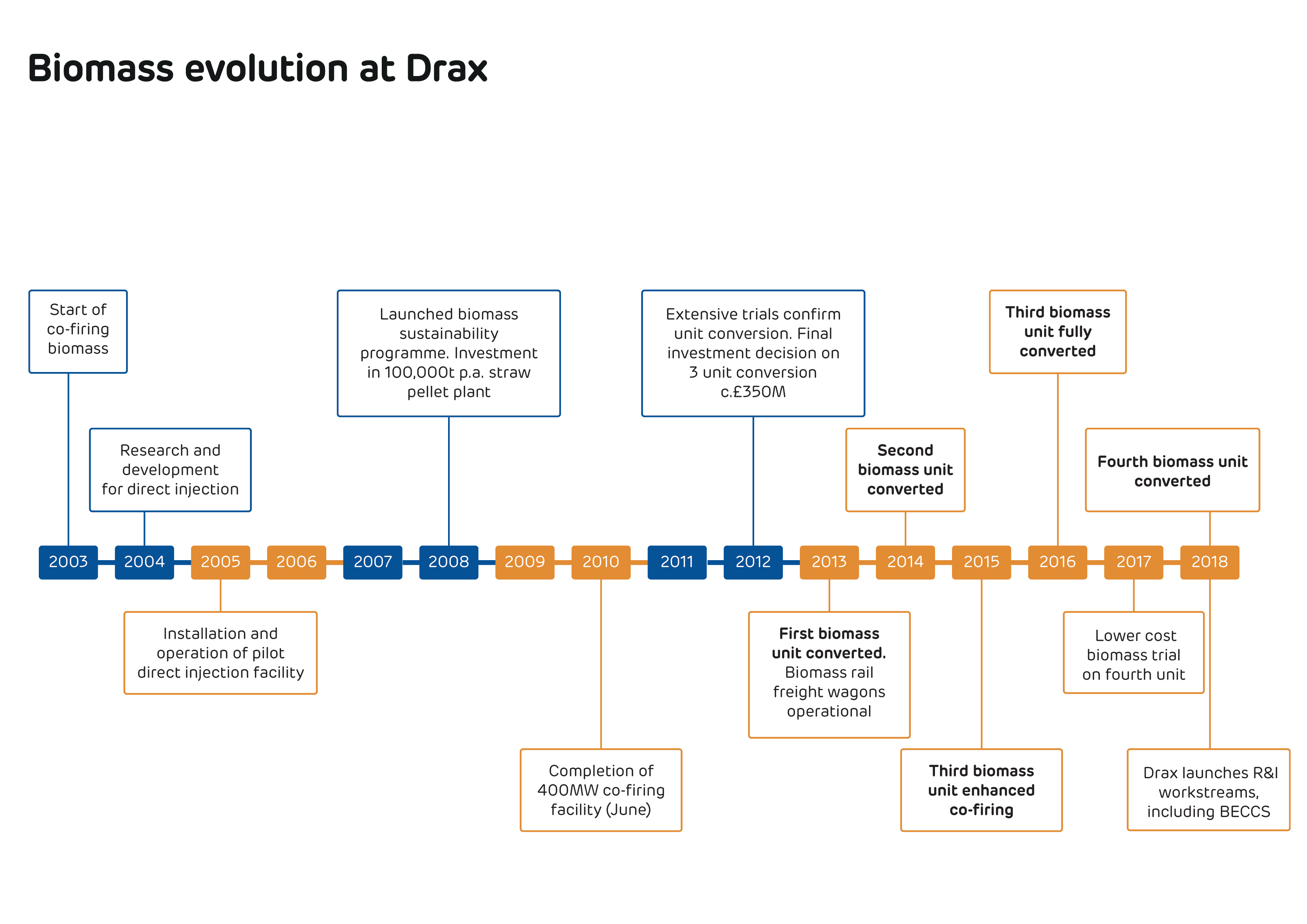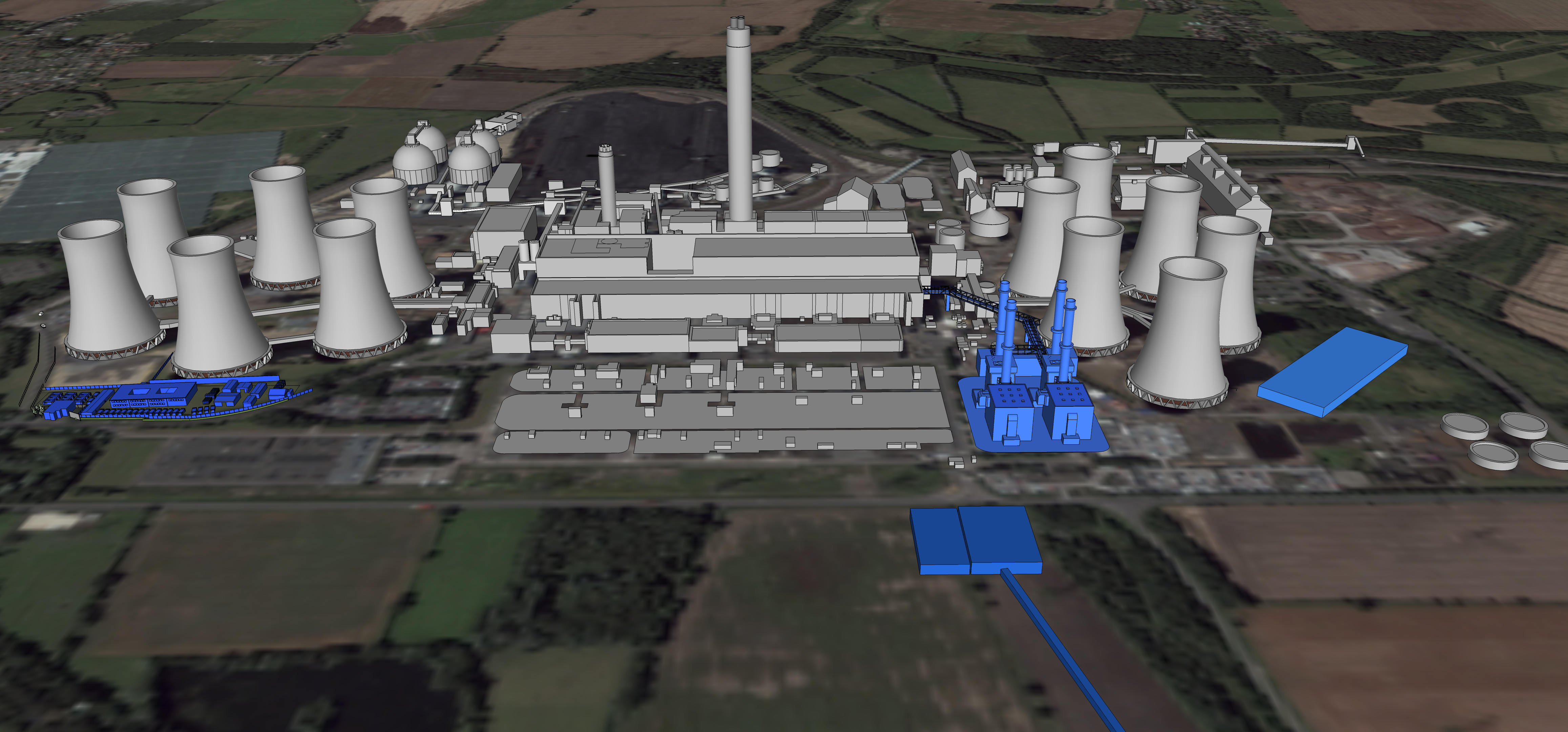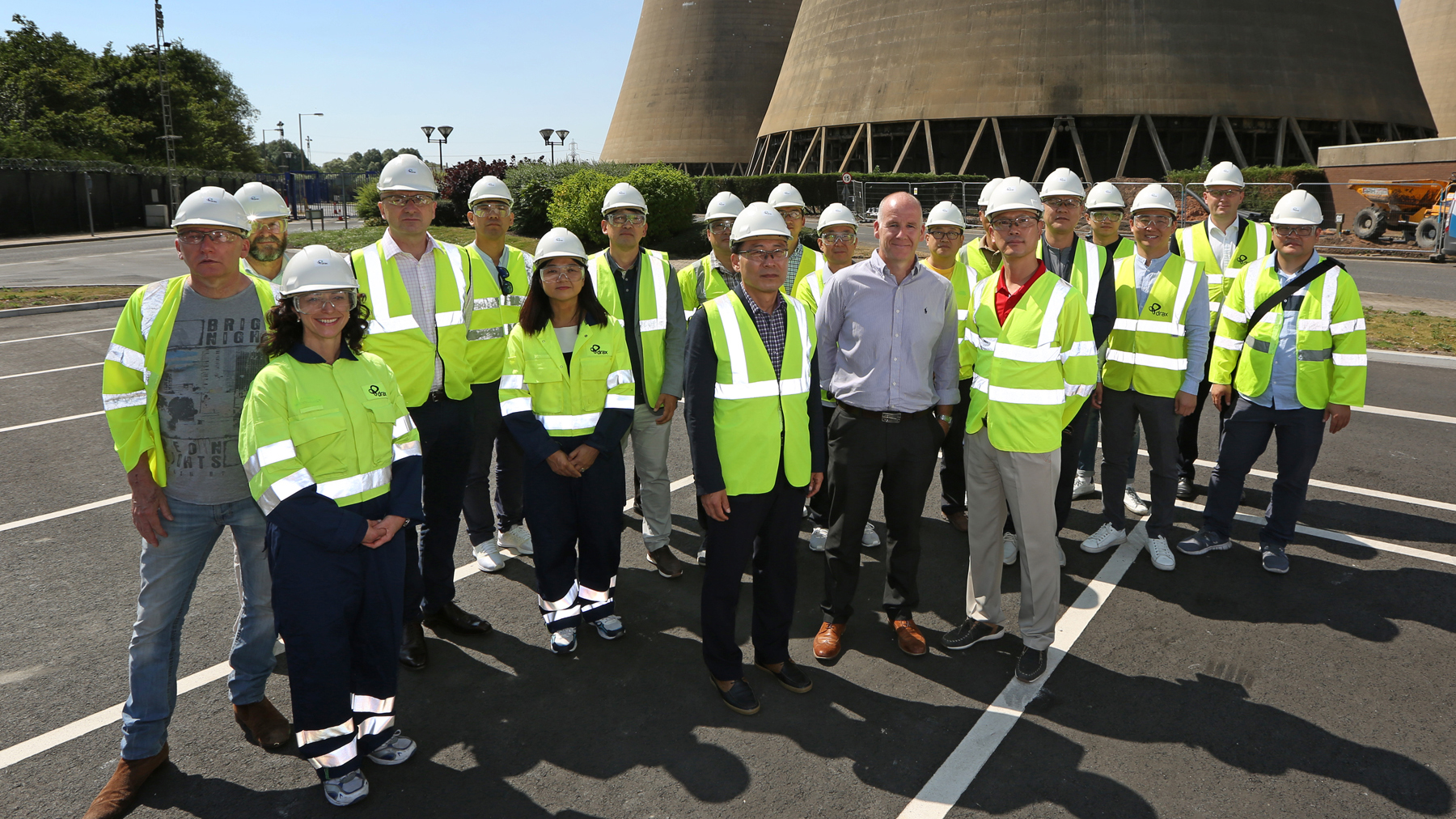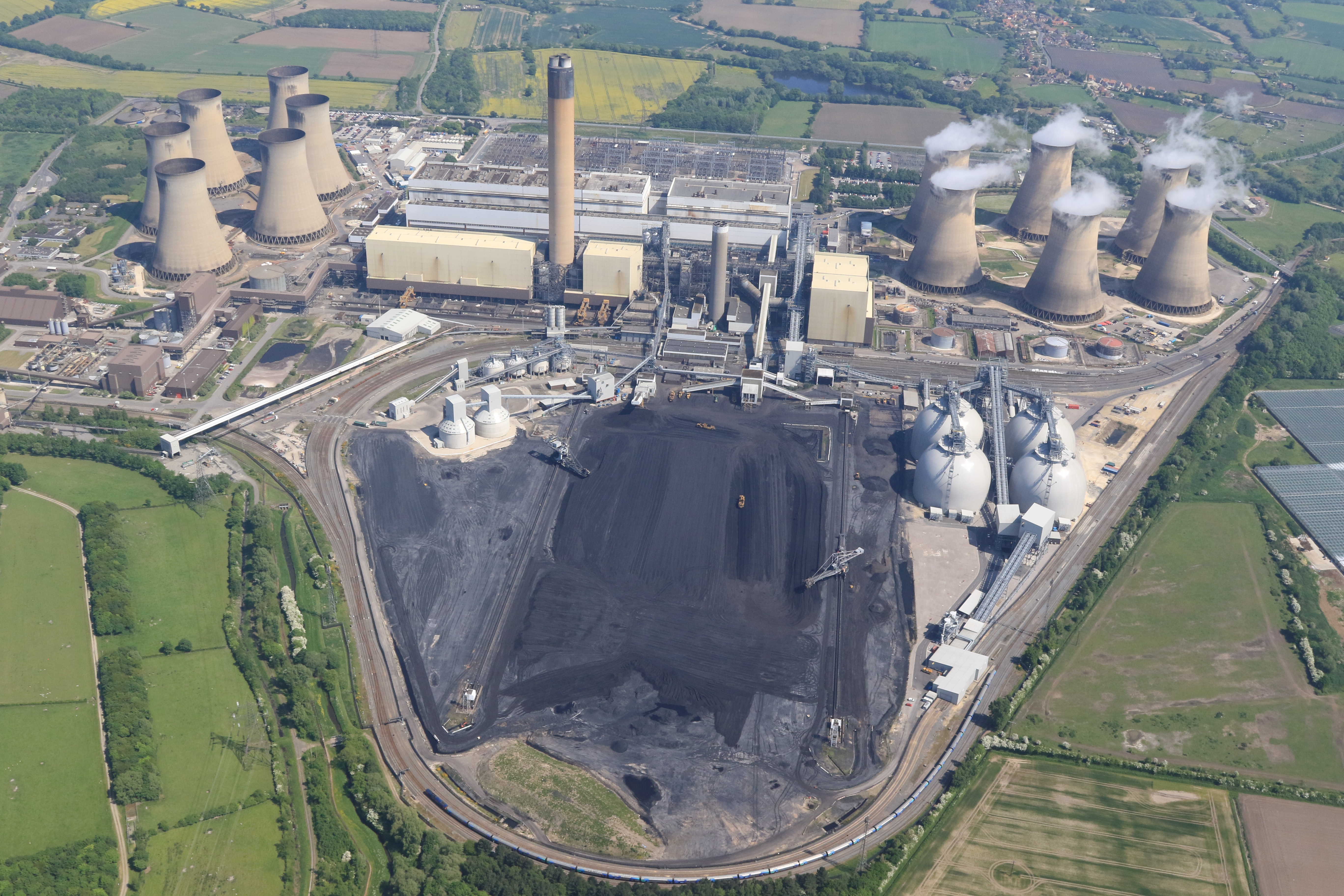
Drax has switched on its fourth biomass generating unit – taking the power station in North Yorkshire a step closer to achieving its coal-free ambitions.
Work got under way on the conversion as part of a planned maintenance programme in June, with Drax’s team of engineers completing the work required, on schedule, in just over two months.
Having upgraded three of its coal units to use biomass, Drax is already the biggest decarbonisation project in Europe. The conversion of a fourth unit means it is on course to be off coal before the government’s 2025 deadline.
To convert the unit the project team has re-used some redundant infrastructure left from when the company was first co-firing biomass with coal on a large scale, around eight years ago.
A trial last year confirmed that by modifying the old co-firing fuel transportation system, compressed wood pellets can be delivered in the quantities required to fully convert the fourth generating unit.
Andy Koss, Drax Power CEO, said:
“This is another major milestone in the transformation of the power station. It will extend the life of the plant, protecting jobs, whilst delivering cleaner, reliable power for millions of homes and businesses.
“It is testament to the engineering expertise, skill and ingenuity we have at Drax. The team has developed some very innovative solutions for this upgrade, using all the knowledge we’ve gained throughout the work we have done so far to transform the business using sustainable biomass.”
The cost of conversion of the fourth generating unit is significantly below the level of previous conversions, at around £30 million.
Drax has already invested around £700 million in upgrading the first three units and associated supply chain infrastructure to use sustainable biomass instead of coal.
Nigel Adams MP for Selby said:
“I’m delighted to see Unit 4 in operation as a biomass unit, continuing the good work Drax is doing with its Beyond Coal strategy, protecting jobs and ensuring it continues to play a vital role in the Northern Powerhouse economy.”
The fourth unit will help the power station, at Selby in North Yorkshire, to deliver vital reliable and flexible power needed by the grid to maintain secure supplies as more renewables come online and the sector continues to decarbonise.
Drax will now continue its work to replace its remaining two coal units, with gas-fired power generating units. The Combined Cycle Gas Turbines it is looking to develop could deliver up to 3.6GW of capacity, as well as up to 200MW of battery storage.
Drax’s plans for the gas project have been submitted to the Planning Inspectorate, which accepted the application for examination. The proposals will now be examined by the Planning Inspectorate and then considered by the Secretary of State for Business Energy and Industrial Strategy with a decision expected in 2019.
In the UK there has been an 84 per cent reduction in coal-fired power generation in the last five years as low carbon generation has increased.
ENDS
Media contacts:
Ali Lewis
Drax Group Interim Head of Media & PR
E: ali.lewis@drax.com
T: 07712 670888
Jessica Gorton
Drax Group Press Officer
E: jessica.gorton@drax.com
T: 020 3943 4305
Editor’s Notes
- Drax welcomed the UK Government’s response to the consultation on cost control for further biomass conversions under the Renewable Obligation scheme, published in January.
- It proposed that, rather than imposing a cap on Renewable Obligation Certificate (ROC) support for any future biomass unit conversions, a cap would be applied at the power station level across all units receiving ROCs.
- This will protect existing converted generating units and limit the amount of incremental ROCs attributable to additional unit conversions to 125,000 per annum.
- As a result, once the unit is converted this summer, Drax expects to optimise its power generation from biomass across its three ROC units under the cap, whilst supporting the Government’s objective of controlling costs under the Renewable Obligation scheme.
- Drax also has a biomass generating unit which receives support under the Contract for Difference (CfD) scheme. This unit is unaffected by the government consultation on cost control for further biomass conversions under the RO scheme.
- The fourth generating unit at Drax was switched on in 1986 when the second half of the power station known as ‘Drax B’ began generating power from coal. This was 12 years after the first half of the power station began generating power in 1974
- Drax converted its first three coal units to use biomass between 2013 and 2016.
- 65% of the electricity Drax produced in 2017 was renewable – enough to power four million households.
- Drax signed up to the Powering Past Coal Alliance in April. The UK-Canadian initiative seeks to end the use of coal by 2030 in developed countries.
- Drax is the most efficient power station in the UK’s coal fleet and Drax’s fourth unit would have been one of the last to close under the Government’s coal phase out plans. This means Drax is closing a coal unit nearly seven years earlier than anticipated.
- In 2016 Drax supported more than 6,000 jobs in the Northern Powerhouse region, whilst generating £577m for the local economy.
About Drax
Drax Group plc plays a vital role in helping change the way energy is generated, supplied and used. Its 2,300-strong staff operate across three principal areas of activity – electricity generation, electricity sales to business customers and compressed wood pellet production.
The Group includes:
Drax Power Ltd, which operates the largest power station in the UK, based at Selby, North Yorkshire and supplies six percent of the country’s electricity needs. The energy firm converted from burning coal to become a predominantly biomass-fuelled electricity generator. Drax is the biggest single site renewable generator in the UK and the largest decarbonisation project in Europe.
Haven Power, based in Ipswich, supplies electricity to large Industrial and Commercial sector businesses.
Opus Energy, based in Oxford, Northampton and Cardiff, provides electricity and gas to small and medium sized (SME) businesses.
Drax Biomass, is based in the US and manufactures compressed wood pellets produced from sustainably managed working forests, supplying fuel used by Drax Power Station in North Yorkshire to generate flexible, renewable power for the UK’s homes and businesses.
For more information visit www.drax.com/us




